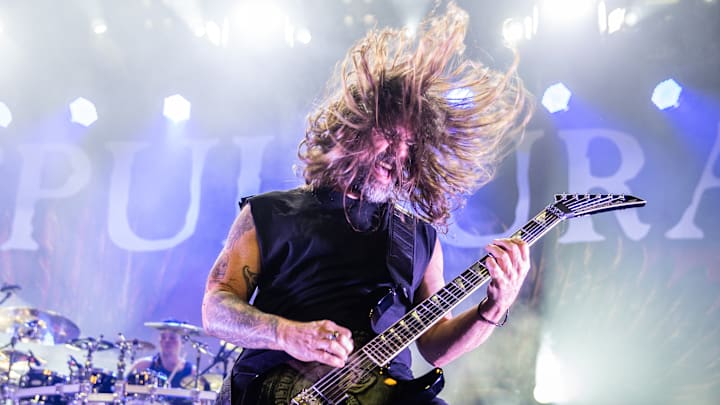In the past, there's been speculation of Sepultura members patching things up, including by band members themselves. However, Sepultura guitarist Andreas Kisser has shared strong opinions regarding Max and Igor Cavalera’s decision to re-record early Sepultura albums, including Morbid Visions (1986), Bestial Devastation (1985), and Schizophrenia (1987). During an interview, Kisser dismissed the effort as having "zero artistic value," expressing his belief that revisiting and re-recording these early works is unnecessary and perhaps financially motivated.
He further criticized Max for the apparent contradiction between claiming creative leadership in Sepultura's early years while revisiting decades-old material. Kisser also pointed to Jairo "Tormentor" Guedz's band The Troops of Doom, praising their homage to Sepultura’s early era as more genuine because they also create new music rather than solely revisiting the past.
The Cavalera brothers, meanwhile, have been clear about their reasons for these re-recordings. According to Max Cavalera, the goal was to modernize the sound of these albums, bringing them closer to the original vision with better production quality. They see the project as a celebration of their early contributions to extreme metal.
Schizophrenia, which marked a shift from their initial black metal roots to a more death-thrash metal sound, was especially significant as it represented their growing global ambitions. The re-recordings have also been packaged with updated artwork and a revitalized production style. Of course, some former Sepultura members have moved on and joined other bands, rather than revisiting past material. Then again, sometimes it might pay to do a revamp, right?
Sepultura's current state
Despite his criticism, Kisser remains focused on Sepultura's current and future projects. Although the band is nearing the conclusion of its farewell tour, they are working on new material with their recent drummer, Greyson Nekrutman. Plans include the release of live recordings from 40 different cities along with four new tracks, signaling a continuation of creative activity even as the band winds down its live career.
Why some might agree with Andrea Kisser's critique of Max
The context of these disagreements reflects the long-standing division between the current incarnation of Sepultura and the Cavalera brothers. After Max's departure in 1996, followed by Igor a decade later, the siblings have pursued projects like Cavalera Conspiracy while periodically revisiting Sepultura's early catalog. Their re-recording efforts have been met with mixed reactions from fans and former bandmates alike, highlighting contrasting views on artistic integrity and legacy.
